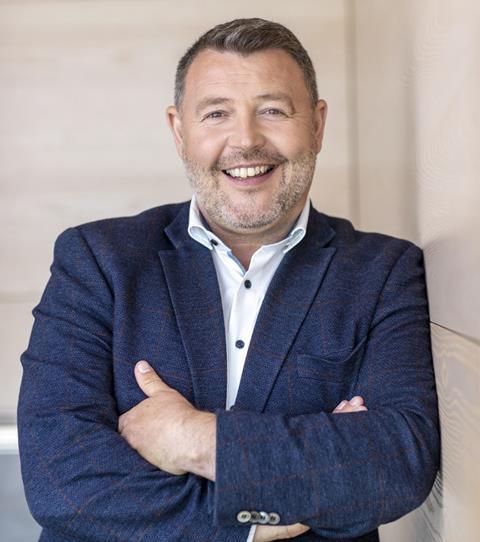Decarbonization and reaching net zero are amongst the key challenges the packaging industry faces. We spoke to UPM Raflatac’s director of sustainability, Robert Taylor, to find out how UPM Raflatac is working towards moving beyond fossil fuels.

Decarbonization and reaching net zero are amongst the key challenges the packaging industry faces. We spoke to UPM Raflatac’s director of sustainability, Robert Taylor, to find out how the company is working towards moving beyond fossil fuels.
Packaging Europe: UPM Raflatac says its ambition is to be the world’s first label materials company to move beyond fossils. In practice, what does this mean?
Robert Taylor: Adapting to climate change is one of the biggest challenges society faces. As part of UPM, we have joined other leading companies in a promise to pursue science-based measures to limit the global temperature rise to 1.5°C. With this in mind, UPM also joined The Climate Pledge which commits the company to achieve net-zero annual carbon emissions by 2040 – a decade ahead of the Paris Agreement’s goal of 2050. Here at UPM Raflatac, working towards becoming the world’s first label material company to move beyond fossils means looking at all our processes, materials and our supply chain and identifying where we can make changes and encourage the adoption of new ways of working. In practice this means increasing our use of certified papers and traceability of biobased materials, fostering the reduction of greenhouse gas emissions, and developing innovative products and services that help our customers take climate action and achieve their own climate goals.
PE: Where is UPM Raflatac in terms of using certified fibres and biobased materials?
RT: Our target is that by the year 2030 100% of our paper raw materials are certified and we have full traceability of other biobased raw materials. More than 90% of papers we purchase are certified in Europe and Asia already, and we have been one of the first adopters in the packaging industry to deliver ISCC PLUS certified products including the UPM Raflatac Forest Film™.
PE: Have you been able to reduce greenhouse gas emissions?

RT: Minimising the use of fossil fuels is the most important way to reduce greenhouse gas emissions and mitigate climate change and we are working to improve energy efficiency across all our sites. Our goal is to reduce scope 1 and 2 CO2 emissions from fossil fuels and purchased electricity by 65%, relative to the volume levels produced in 2015, by 2030. We also aim to reduce our supply chain, scope 3, emission levels by 30%, relative to the volume levels produced in 2018. So far, we have six out of ten factories operating with 100% renewable electricity. To help achieve this -30% reduction of scope 3 emissions by 2030, we recently held a UPM Climate Day where more than 60 companies participated and supported in the development of roadmaps to reach this goal.
PE: Have you introduced any products to help your customers achieve their climate goals and how have these been received?
RT: Creating labelling solutions that rely less on virgin fossil-based materials and increase overall sustainability and circularity has been our focus for many years now. At present, we have brought to market a wide range of labelling solutions that follow the principles of reduce, recycle, renew and reuse. The solutions have been proving popular with printers and converters, as they help brands meet virgin-material reduction targets, reducing the pressure on using such feedstocks and combatting climate change. Some of our launches include Direct Thermal (DT) linerless labels that have a lower carbon footprint compared to standard labeling material and are certified as CarbonNeutral® products. Another example is Forest Film, a 100% renewable wood-based film material.
PE: Tackling climate change requires unprecedented levels of cooperation – as a label manufacturer, what do you see are the upstream challenges when it comes to ‘going beyond fossils’?
RT: The time for incremental improvements has passed and the industry must now walk the talk and act in line with the commitments made. Partnerships play a key role here, as it is only through collaboration with value chain partners, both upstream and downstream, that the highest possible positive impact on climate and people can be reached. Ultimately our ambition is to reach a future Beyond Fossils.
If you liked this article, you might also enjoy:
McKinsey on whether or not on-pack sustainability claims affect consumer spending
A deep dive into the most important packaging sustainability trends and solutions














No comments yet